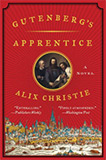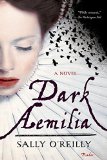Summary | Excerpt | Reading Guide | Reviews | Beyond the book | Read-Alikes | Genres & Themes | Author Bio

A novel
by Jonathan GalassiGalassi's novel, Muse is a story of poetry and also of love. The "muse" in question is Ida Perkins, a poet of national clout with quite a following. Notably, her enamored fans include publishing moguls Homer Stern and his business rival (and Ida's own cousin), Sterling Wainwright.
The story is written from the perspective of the quiet Paul Dukack, Sterling's friend and an employee at Homer's publishing house, Purcell and Stern. As it turns out, Ida is also Paul's passion — as a lonely young man, he once found solace in her profound work and continues to do so. When Paul finally meets Ida in person, she gives him a surprising and challenging task that will have an unexpected and subtle impact on his life.
Galassi paints a picture of a fast and intense literary world of publishing. The many names are at first difficult to wade through and it is hard to discern who the important characters are. And as the players rise up, the reader begins to wonder who the story really is about: Paul Dukack the young editor at Purcell and Stern? Homer Stern, the loud and ostentatious publisher? Sterling Wainwright who is quieter in style than Stern but no less self-involved? Or is it about Ida Perkins, the beloved muse herself, whose writing and character captivate with a fervent attraction?
The preface opens by pointing out that Muse is a love story, but Galassi also issues a warning: "We makes so much of love. We live for it, we ache for it, we convince ourselves that we'll die without it and make the search for it the focus of our lives. Yet love, my friends, is a terrible pain. Proceed with caution." At first glance, with none of the traditional love-story cues, Muse does not appear to be a classic example of the form. But the theme of love is omnipresent: Ida's poems detail her myriad trysts, including with both Wainwright and Homer. Paul's own path to love is a quiet search. Each character's pursuit of a satisfying love is a rough journey. This idea is underscored toward the end when Ida entrusts Paul with the responsibility of publishing her last and most powerful work which includes unexpected details about her love life. Love is indeed, as Galassi warns, "a terrible pain."
The story is also about the publishing barons jockeying against each other to sign on the best writers. Homer regards his authors as "living, breathing collectibles" coveting the rights to Ida Perkins' work above all, while Sterling, because of his familial connection, actually owns them. And both men strive to hold on to Paul's loyalties, Homer as his employer and Sterling as an informal mentor. Paul alone seems to operate free of this impulse to own. He is motivated by a desire to share Ida's work rather than profit from it.
Ultimately, Ida shows the reader that no one can fundamentally possess beauty. One can only just appreciate it and perhaps, if lucky, be a part of it. Ida informs the literary world to which she belongs, providing inspiration and drive to each of its characters. Her ability to become the voice for art and love will captivate readers just as strongly.
![]() This review was originally published in The BookBrowse Review in July 2015, and has been updated for the
July 2016 edition.
Click here to go to this issue.
This review was originally published in The BookBrowse Review in July 2015, and has been updated for the
July 2016 edition.
Click here to go to this issue.

If you liked Muse, try these:

by Alix Christie
Published 2015
An enthralling literary debut that evokes one of the most momentous events in history, the birth of printing in medieval Germany—a story of invention, intrigue, and betrayal.

by Sally O'Reilly
Published 2015
In rich, vivid detail, Sally O'Reilly breathes life into England's first female poet, a mysterious woman nearly forgotten by history. Full of passion and devilish schemes, Dark Aemilia is a tale worthy of the Bard.
A book may be compared to your neighbor...
Click Here to find out who said this, as well as discovering other famous literary quotes!
Your guide toexceptional books
BookBrowse seeks out and recommends the best in contemporary fiction and nonfiction—books that not only engage and entertain but also deepen our understanding of ourselves and the world around us.